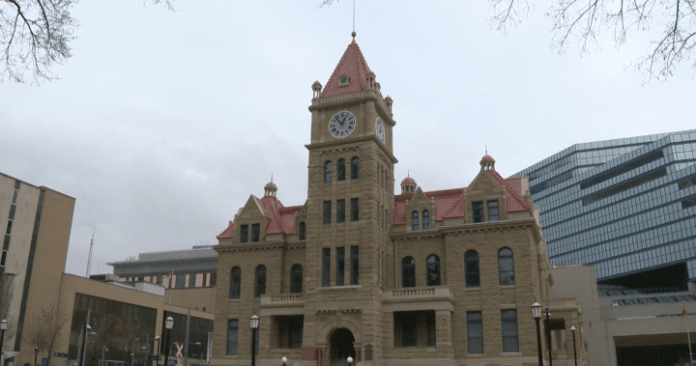Calgarians could be facing an overall 3.6 per cent property tax increase if the next city council approves recommended adjustments to the final year of the city’s four-year budget.
The City of Calgary released a preview of the 2026 budget on Wednesday, which proposes more than $318 million in new spending for housing, transit, public safety and infrastructure.
Despite the increased spending, city administration said it managed to keep the property tax increase within the confines of the previously approved 3.6 per cent increase.
“We know Calgarians are feeling today’s economic challenges, which is why we are focused on investing in what matters most to Calgarians,” the city’s chief administrative officer, David Duckworth, said in a statement. “This budget balances affordability with the demands of a growing city, allowing us to continue to deliver high quality programs and services that meet the needs of our community.”
Although the overall property tax increase is proposed at 3.6 per cent, the increase is likely to be 5.4 per cent for residential property owners and 1.3 per cent for commercial properties on average.
The difference is also due to another one per cent property tax shift from non-residential to residential properties, previously approved by council, to keep the forecasted tax ratio at 4.48:1, below the provincially legislated maximum of 5:1.

Get breaking National news
For news impacting Canada and around the world, sign up for breaking news alerts delivered directly to you when they happen.
What the proposed increase means for a typical homeowner’s monthly bill won’t be available until the budget is released in November, when preliminary property assessment values for 2026 are available.
Fees and utilities are also recommended to increase in the budget proposal, with water, wastewater and stormwater set to rise by 3.8 per cent, or an additional $4.32 per month based on typical usage.
Monthly blue, black and green cart fees are expected to rise to $20.51, nearly one dollar more than last year but down $4.49 since 2023.
According to the budget preview, typical increases for adult public transit fares and recreation fees are proposed at 2.6 per cent in 2026.
“By staying true to the original four-year plan and taking a disciplined approach to financial management, we’re ensuring essential services are maintained while using limited resources effectively to meet the needs of a growing population, without adding extra strain on
taxpayers,” said the city’s chief financial officer, Les Tocher, in a statement.
With the new proposed spending, the budget will include $4.6 billion in operating spending and $3.6 billion in capital investments for 2026.
The proposed budget includes $78 million for affordable housing, as well as support for downtown office-to-residential conversions.
There is also $68 million in proposed new spending for infrastructure, including facilities, streetlights, parks and the Plus 15 network; $24 million of that will be set aside for pavement rehabilitation.
For public safety, the city said $61 million dollars in spending is being recommended for next year.
One-time funding of $28 million is earmarked for the Calgary Police Service to cover a funding gap due to a loss in fine revenue after the province implemented new rules for photoradar.
The net police budget is set to increase by $72 million to a proposed $613 million in 2026.
However, the police service is not requesting a funding increase for 21 new officers approved for next year, according to a memo from the Calgary Police Commission, due to constraints on training capacity, training space and trainers.
“To be blunt, the Calgary Police Service is not able to recruit, train and equip more officers than it is already expecting to hire,” the memo to city council said.
The full budget will be formally presented to the next city council on Nov. 10, with public deliberations beginning on Nov. 24.
— More to come …
© 2025 Global News, a division of Corus Entertainment Inc.









